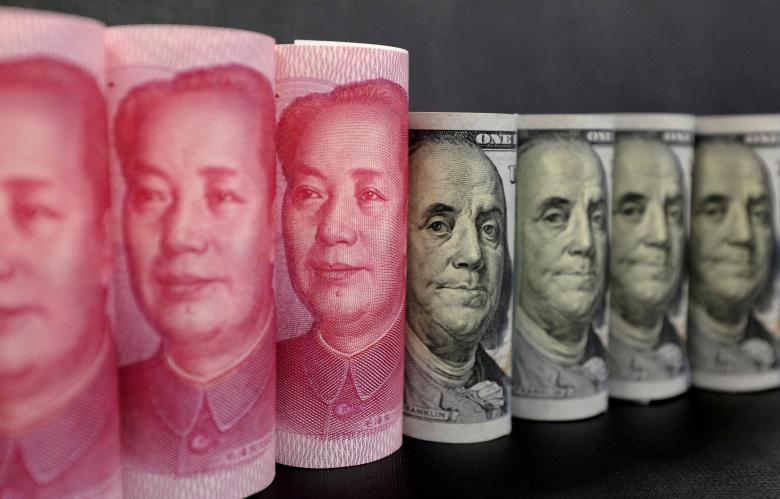China says not devaluing yuan, urges US cooperation as Xi prepares to meet Trump

BEIJING - China called on the United States to play its part in resolving trade frictions between the two countries, and said Beijing isn't devaluing its currency to boost exports as tensions simmered ahead of President Xi Jinping's first meeting with US President Donald Trump.
Trump set the tone for what could be a tense meeting at his Mar-a-Lago retreat next week by tweeting on Thursday that the United States could no longer tolerate massive trade deficits and job losses.
The leaders of the world's two largest economies are scheduled to meet next Thursday and Friday for the first time since Trump assumed office on Jan. 20.
In Thursday's tweet, Trump said the highly anticipated meeting, which is also expected to cover differences over North Korea and China's strategic ambitions in the South China Sea, "will be a very difficult one."
Chinese Vice Foreign Minister Zheng Zeguang acknowledged there was a trade imbalance, but said this was mostly due to differences in their two economic structures and noted that China had a trade deficit in services.
"China does not deliberately seek a trade surplus. We also have no intention of carrying out competitive currency devaluation to stimulate exports. This is not our policy," Zheng told a briefing about the Xi-Trump meeting.
The yuan fell 6.5 percent last year in its biggest annual loss against the dollar since 1994, knocked by pressure from sluggish economic growth and a broadly strong US currency.
China's last one-off currency devaluation, a 2 percent move in August 2015, shocked global markets and was widely viewed by traders and economists as a failure.
Trump has frequently accused China of keeping its currency artificially low against the dollar to make Chinese exports cheaper, and "stealing" American manufacturing jobs.
While he resisted acting on a campaign promise to declare China a currency manipulator on his first day in office, tensions have persisted over how the Trump administration's China policy would evolve.
Zheng said domestic consumption in China will increase as it pursues economic reforms, helping to raise demand for foreign goods and services, including those from the United States.
"This also helps ameliorate the trade imbalance between China and the United States," he said.
Chinese investment in the US is also rising, creating more employment opportunities, Zheng said, adding that Beijing is willing to work with Washington to promote more balanced trade between the two countries.
He said the trade imbalance can be resolved by improved cooperation, and urged Washington to lift restrictions on civilian technology exports to China and create better conditions for Chinese investment in the United States.
Referring to protracted negotiations on a US-China Bilateral Investment Treaty given disagreements about access to sectors the sides deem sensitive, Zheng said China remained committed to seeking solutions through dialog.
Nonetheless, the United States had to do play its part too, he said. "China can expand imports from the United States. The United States should take steps to promote exports to China," Zheng said. "As long as both sides broaden their thinking, take positive moves, both countries can do a lot in the trade and business sphere, and can achieve mutually beneficial, win-win results." -Reuters







